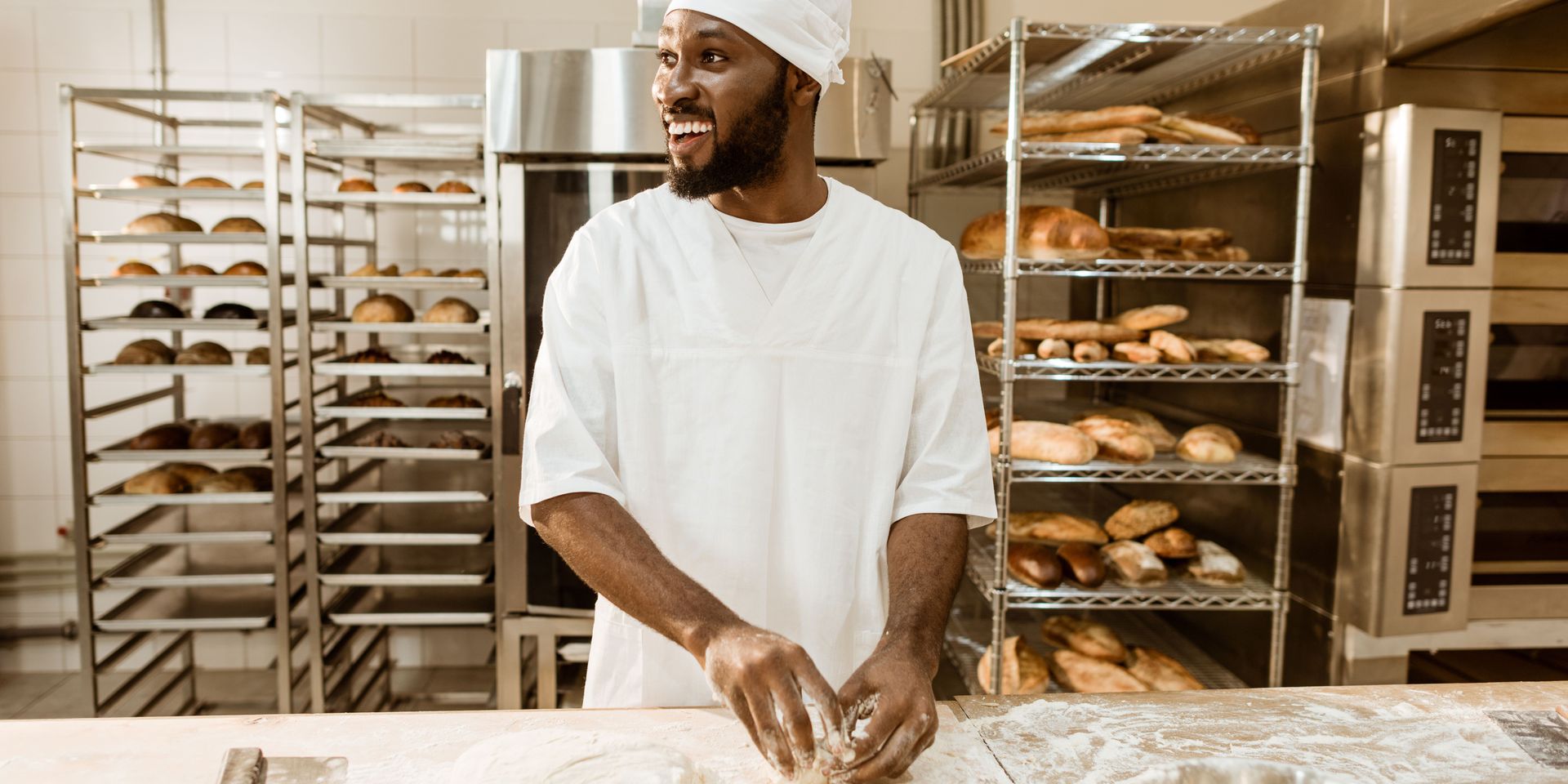The job of baker generally requires a CAP (vocational training certificate) in baking, a Bac Pro (vocational training certificate) in baking and pastry-making, or a BP (vocational training certificate) in baking. A first experience in a bakery is often essential to master the various production techniques.
Working as a temporary baker
As a temporary baker, you can work in a variety of bakeries, both small-scale and industrial. This diversity enables you to discover different working methods and develop your skills in a variety of environments. Temporary work also allows you to adapt to peaks in activity, such as the festive season, while acquiring a rich and varied experience. For those who enjoy taking on new challenges, temping is an excellent way of testing out different establishments and expanding your professional network before committing to a permanent position.
Salary
A starting baker typically earns around the minimum wage. With experience and depending on the size of the business or the bakery's reputation, the salary can increase. An experienced baker or head baker can earn between €2,000 and €3,500 gross per month, with further increases possible for those running their own establishment.
Working Conditions
Hours: Bakeries open early, requiring work before dawn to ensure bread is ready by morning. This involves shifted hours and weekend work.
Environment: Work in hot, noisy workshops, handling heavy machinery and large quantities of ingredients.
Physical Demand: Intensive physical work, lifting heavy loads (sacks of flour) and standing for extended periods.
Career Prospects
The baker can progress to the position of Head Baker, Production Manager or open his or her own bakery. With experience, they can also specialize in specific areas, such as organic bakery, luxury viennoiserie, or training baker apprentices.



